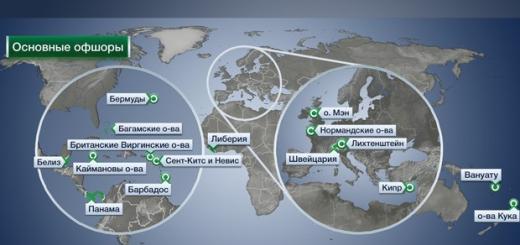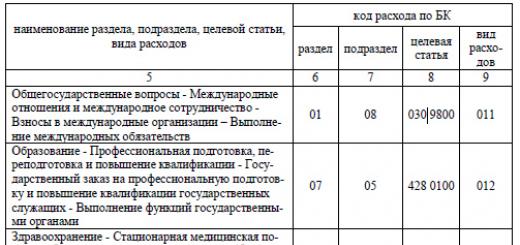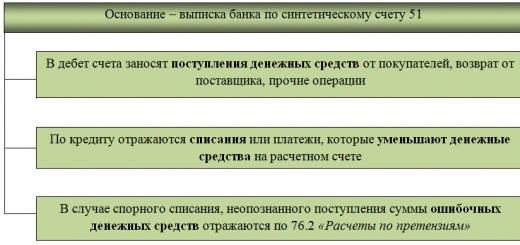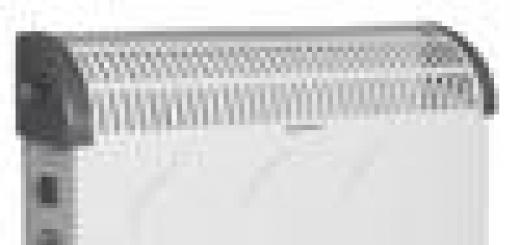Publication date: 21.07.2017
Date of change: 21.07.2017
Attached file: doc, 165 kB
MINISTRY OF FINANCE OF THE RUSSIAN FEDERATION
Department of Regulation
accounting, financial reporting
And audit activity
QUALITY CONTROL
AUDITING ORGANIZATIONS
AND INDIVIDUAL AUDITORS
Report for 2016
Introduction
This Report provides generalized information on the state of the quality control system for the work of audit firms and individual auditors in the Russian Federation in 2016.
This Report has been prepared on the basis of information submitted annually to the Ministry of Finance of Russia by self-regulatory organizations of auditors, the Federal Treasury as an authorized body for the supervision of audit organizations, as well as audit organizations and individual auditors. In preparing the Report, legislative and other regulatory legal acts in the field of regulation of audit activities, the results of the analysis of the materials of external quality reviews conducted in 2016, expert assessments and opinions on the organization and implementation of external quality control of work, discussion materials on this issue at meetings of the Audit Council and its Working Body.
Work quality control system
In accordance with the Federal Law “On Auditing Activities”, audit organizations and individual auditors are required to establish and comply with the rules for internal quality control of their audit. The principles for the implementation of internal quality control of the work of audit organizations, individual auditors and the requirements for the organization of this control are established by the auditing standards.
In addition, audit organizations, auditors are required to:
pass external quality control of work;
participate in the implementation by the self-regulatory organization of auditors, of which they are members, of external quality control of the work of other members of this organization.
External quality control of the work of audit organizations conducting a mandatory audit of the accounting (financial) statements of socially significant organizations, in addition to self-regulatory organizations of auditors, was carried out by the Federal Treasury. For the purposes of this Report, publicly significant organizations are organizations that securities which are admitted to organized trading, other credit and insurance organizations, non-state pension funds, organizations in whose authorized (reserve) capital the share of state ownership is at least 25 percent, state corporations and companies, public companies.
The subject of external quality control of work is compliance by audit organizations and auditors with the requirements:
Federal Law "On Auditing",
auditing standards,
rules for the independence of auditors and audit organizations,
code of professional ethics for auditors.
The principles for exercising external quality control of work and the requirements for organizing such control until April 4, 2016 were established by the federal auditing standard FSAD 4/2010 "Principles for exercising external quality control of the work of audit organizations, individual auditors and requirements for organizing such control", approved by order of the Ministry of Finance of the Russian Federation dated February 24, 2010 No. 16n, and from April 5, 2016 - Regulations on the principles of external quality control of the work of audit organizations, individual auditors and requirements for the organization of this control, approved by order of the Ministry of Finance of Russia dated December 18, 2015 No. 203n. The rules for organizing and implementing external quality control of work are determined by self-regulatory organizations of auditors. The procedure for organizing and exercising external quality control of the work of the Federal Treasury was regulated by the Administrative Regulations for the performance of the state function for external quality control of the work of audit organizations, determined by the Federal Law "On Auditing", approved by Order of the Ministry of Finance of Russia dated January 11, 2013 No. 3n.
Indicators of control activity for 2016
In 2016, within the framework of the system of external quality control of the work of audit organizations and auditors, the Federal Treasury and self-regulatory organizations of auditors conducted 7529 audits, including 1550 audits of audit organizations and 5979 audits of auditors, including 184 audits of individual auditors. These inspections covered 35% of all audit organizations, 26% of all individual auditors and 28% of all other auditors who participated in (conducted) audit activities in the Russian Federation.
Planning of inspections by the Federal Treasury and self-regulatory organizations of auditors was carried out mainly on the basis of a risk-based approach. The risk-based approach involves the selection of objects of external quality control of work based on the analysis of the risks of their audit activities. At the same time, in particular, the following risks of the activities of audit organizations (individual auditors) were taken into account: the number of clients whose securities are admitted to circulation in organized trading; the number of other clients that are considered socially significant; results of previous external audits, including identified deficiencies in the organization and implementation of internal quality control of work audit organization(individual auditor), violation of the requirement of independence of auditors and audit organizations, non-compliance with the requirement of training in advanced training programs for auditors.
At the same time, the Federal Treasury and self-regulatory organizations of auditors ensured compliance with the frequency of audits established by the Federal Law "On Auditing":
audit organizations conducting a mandatory audit of the accounting (financial) statements of socially significant organizations - no more than once every two years (for the Federal Treasury); at least once every three years (for self-regulatory organizations of auditors);
other audit organizations, as well as individual auditors - at least once every five years (for self-regulatory organizations of auditors).
Based on the frequency of external audits of the quality of work of their members by self-regulatory auditor organizations at least once every five years, the theoretical level of coverage of audit organizations and individual auditors with audits during a five-year cycle should be at least 20%. The actual level of coverage of audit firms and individual auditors with control activities carried out by self-regulatory auditor organizations averaged 22.1% over five years (21.0% in 2012, 18.8% in 2013, 21% in 2014, 3%, 2015 - 20.4%, 2016 - 29.0%).
Federal Treasury
In 2016, in accordance with the Federal Law “On Auditing Activities”, the Regulations on the Federal Treasury, approved by Decree of the Government of the Russian Federation No. 703 dated December 1, 2004, the Federal Treasury, as a body independent of the audit profession, carried out external quality control of the work of audit organizations, conducting statutory audit financial statements socially significant organizations. In 2016, this service was provided by more than 650 audit organizations.
During the year, the Federal Treasury conducted 239 audits (237 in 2015). Inspections were carried out in all federal districts. Of the total number of inspections, 91% were scheduled (96% - in 2015), 9% - were carried out outside the approved plan, including in connection with complaints received by the Federal Treasury (4% - in 2015).
In 2016, there were 6 cases of audit firms evading external quality control by the Federal Treasury. Compared to 2015, the number of such cases has decreased by 45%.
The number of full-time controllers of the Federal Treasury in 2016 amounted to 72 people.
Facts of violation by audit organizations of the Federal Law “On Auditing” and federal auditing standards were established during 188 audits (191 in 2015). Based on the results of these inspections, the Federal Treasury adopted 188 decisions on the application of enforcement measures:
44 prescriptions obliging audit organizations to eliminate identified violations (34 in 2015);
120 warnings about the inadmissibility of violations of the rules of audit activity (149 - in 2015);
13 orders to suspend the membership of audit organizations in self-regulatory organizations of auditors (5 - in 2015);
11 prescriptions on the exclusion of audit organizations from self-regulatory organizations of auditors (3 - in 2015).
In addition, the Federal Treasury drew up 29 protocols on administrative offenses (24 in 2015), the responsibility for which is provided for by the Code of Administrative Offenses of the Russian Federation (for obstructing the lawful activities of an official of the body state control(supervision), for the provision of information (information) in an incomplete or distorted form).
The share of inspections, as a result of which the Federal Treasury took enforcement measures, in the total number of inspections of audit organizations conducted by it amounted to 79% in 2016 (81% - in 2015). The control activity of the Federal Treasury has a significant disciplining effect on the subjects of audit activities, contributes to increasing the reliability of financial information and strengthening the confidence in it of users of accounting (financial) statements.
Self-Regulatory Organizations of Auditors
The number of external audits of the quality of work of audit organizations conducted by self-regulatory organizations of auditors is characterized by the following data:
Compared to 2015, the number of auditors conducted in 2016 by self-regulatory organizations of external audits of the quality of work of audit organizations increased by 30.2%. An increase in the number of audits performed took place in all self-regulatory organizations of auditors, with the exception of IPAR.
As before, the majority of external quality reviews in 2016 were conducted by self-regulatory organizations of auditors in small audit organizations. IN reporting year the share of audit organizations audited by them, which audited the accounting (financial) statements of publicly significant organizations, decreased by 0.5 percentage points and amounted to 21.8%. Audits covered audit organizations located in all federal districts.
Out of the total number of external quality audits, 95% were planned (99% in 2015), 5% were conducted outside the approved plans (1% in 2015), including on the basis of complaints received by self-regulatory organizations of auditors.
In 2016, self-regulatory organizations of auditors conducted 1,262 inspections of compliance by audit organizations with the requirements of the Federal Law “On Combating the Legalization (Laundering) of Proceeds from Crime and the Financing of Terrorism” (973 in 2015), as well as 1,241 inspections of compliance by audit organizations with the requirements on combating corruption (986 - in 2015). All inspections on these issues were carried out in the course of external quality control of the work of audit organizations.
In 2016, there were 331 cases of audit organizations evading external quality control of work by self-regulating organizations of auditors. Compared to 2015, the number of such cases increased by 56%. They took place in all self-regulatory organizations of auditors: RSA - 83 cases, AAS - 151, APR - 3, IPAR - 11, RCA - 83.
The number of external quality reviews of the work of individual auditors conducted by self-regulatory organizations of auditors is given in the following table:
Compared to 2015, the number of external audits of the quality of work of individual auditors conducted in 2016 increased by 152%. An increase in the number of inspections took place in all self-regulatory organizations of auditors, with the exception of IPAR.
The number of external audits of the quality of the work of auditors (other than individual auditors) by self-regulatory organizations of auditors is characterized by the following data:
Compared to 2015, the number of external audits of the quality of work of these auditors conducted in 2016 increased by 43%. An increase in the number of audits performed took place in all self-regulatory organizations of auditors, with the exception of IPAR.
In 2016, there were 392 cases of auditors evading external quality control of work by self-regulatory organizations of auditors. Compared to 2015, this indicator increased by more than 11 times.
The expenses of all self-regulatory organizations of auditors for the implementation of external quality control in 2016 amounted to 54.8 million rubles. or 21.6% of the total expenses of these organizations. Compared to 2015, the total costs of external quality assurance increased by 0.4%, and their share in the total costs of self-regulatory auditor organizations increased by 0.3 percentage points. An increase in the cost of external quality control has occurred in AAS and RCA.
|
Expenses for external quality control, million rubles |
External quality control costs per |
|||||
|
one check, rub. |
one member of the self-regulatory organization of auditors, rub. |
|||||
The total amount of compensation funds of self-regulatory organizations of auditors as of December 31, 2016 amounted to 178.8 million rubles. The average size of the compensation fund is 35.8 million rubles. Compared to 2015, the amount of compensation funds of self-regulatory organizations of auditors increased in all self-regulatory organizations of auditors: PCA - by 41.2%, AAS - by 61.6%, APR - by 8.6%, IPAR - by 7.1% , RCA by - 6.8%. As in previous years, no payments from compensation funds were made by self-regulatory organizations of auditors in 2016.
In 2016, the number of authorized controllers in self-regulatory organizations of auditors amounted to 519 people, including 12 full-time controllers in the RAMI, AAS and APR. However, only 398 controllers of self-regulatory organizations of auditors, or 77% of their total number, actually took part in the implementation of external quality control of work.
In 2016, 329 auditors were trained under professional development programs related to external quality assurance (882 in 2015).
The performance of quality controllers of self-regulatory organizations of auditors is characterized by the following data:
| Self-Regulatory Organization of Auditors | Number of quality controllers actually involved in the implementation of external quality control of work | The number of all inspections per one quality controller who actually took part in the implementation of external quality control of work | The number of audit firms and individual auditors per one quality controller who actually took part in the implementation of external quality control of work | |||
| 2016 | 2015 | 2016 | 2015 | 2016 | 2015 | |
| SAR | 90 | 69 | 25,1 | 14,5 | 14,7 | 18,0 |
| AAS | 100 | 99 | 11,8 | 10,8 | 15,6 | 15,8 |
| APR | 119 | 91 | 17,0 | 13,7 | 8,3 | 11,5 |
| IPAR | 21 | 20 | 30,5 | 36,6 | 14,4 | 21,0 |
| RCA | 68 | 55 | 17,6 | 19,8 | 14,5 | 18,3 |
According to the results of auditors conducted by self-regulatory organizations in 2016, 1,241 audit organizations and 183 individual auditors passed external quality control of work (100% of the total number of auditors of audit organizations and individual auditors audited by self-regulatory organizations). At the same time, in 2016, in the course of external reviews of the quality of work, all self-regulatory organizations of auditors revealed 6,931 violations. No cases of harm caused by the actions of members of self-regulatory organizations of auditors were identified based on the results of inspections.
Disciplinary measures were taken by self-regulatory organizations of auditors based on the results of 165 audits (114 in 2015). These measures were taken against 103 audit firms (72 in 2015) and 62 auditors (42 in 2015). The disciplinary measures taken in 2016 are characterized by the following data:
|
Self-Regulatory Organization of Auditors |
Disciplinary action taken |
|||||||||
|
Instructions obliging to eliminate violations |
Violation warnings |
Suspension of membership in a self-regulatory organization of auditors |
Exclusion from members of a self-regulatory organization of auditors |
|||||||
|
auditors |
Audit organizations |
auditors |
Audit organizations |
auditors |
Audit organizations |
auditors |
Audit organizations |
auditors |
Audit organizations |
|
In 2016, there was an increase in the number of disciplinary measures applied by 62.1% compared to 2015. An increase in the number of disciplinary measures applied by self-regulatory organizations took place for all types of these measures, except for the exclusion of auditors from members of the self-regulatory organization. The share of inspections, following which self-regulatory organizations of auditors took action, in the total number of inspections of audit organizations they conducted, amounted to 13% in 2016 (11% - in 2015).
In the course of inspections of compliance by audit organizations with the requirements of the Federal Law “On Combating the Legalization (Laundering) of Proceeds from Crime and the Financing of Terrorism”, no violations were identified.
Weaknesses Identifiedexternal quality control system
The most significant shortcomings in the work of audit organizations and auditors were identified by inspections conducted in 2016, and were also noted by experts on audit activities in the following areas:
organization and implementation of internal quality control of work;
conducting an audit of accounting (financial) statements;
independence and professional ethics.
Analysis of the results of the audits, as well as expert opinions, allows us to consider these shortcomings as typical, requiring special attention from audit organizations and auditors. At the same time, most of the shortcomings have been noted for a number of years.
Organization and implementation
internal quality control of work
From the point of view of compliance with the requirements of federal auditing standards in terms of organizing and implementing internal control over the quality of work, the following most significant violations and shortcomings were identified:
1) a formal approach to the implementation of internal quality control of work;
2) the absence of the fact or documentary evidence of the implementation of internal quality control of work (FPSAD No. 34, FPSAD No. 7).
Conducting an auditaccounting (financial) statements
From the point of view of compliance with the requirements of federal auditing standards, the following most significant violations and shortcomings in the audit of accounting (financial) statements were identified:
1) the absence of a fact or documentary evidence of the fulfillment audit procedures by the auditor or control by the auditor over the implementation of audit procedures by employees of the audit organization (FPSAD No. 7);
2) low quality of the working documentation of the auditor, including the formation and storage of audit files (FPSAD No. 2);
3) failure to comply with the requirements regarding the study of information on related parties (FPSAD No. 9);
4) the absence of the fact or documentary evidence of the consideration of compliance by the audited entity with the requirements of regulatory legal acts during the audit (FSAD 6/2010);
5) non-compliance with the procedure for agreeing the terms of the audit with the audited entity (FPSAD No. 12);
6) the absence or insufficiency of audit procedures in relation to the applicability of the assumption of the continuity of the activity of the audited entity (FPSAD No. 11);
7) the absence of the fact or documentary evidence of the consideration during the audit of comparable data in the accounting (financial) statements (FPSAD No. 26);
8) the absence of the fact or insufficiency of evidence of proper interaction of auditors when changing the audit organization or when changing the auditor in the course of performing an assignment that was handled by another auditor (FSAD 5/2010);
9) insufficiency of measures taken to identify and evaluate events that occurred after the reporting date (FPSAD No. 10);
10) the absence or insufficiency of alternative audit procedures in case of non-receipt of responses to a request for external confirmation; leaving unresolved discrepancies in the data of the audited entity and data of external confirmation without due consideration (FPSAD No. 18);
11) lack of documents substantiating the size of the audit sample (FPSAD No. 16);
12) low level of audit planning (FPSAD No. 3);
13) the insufficiency of the measures taken to assess the risks of material misstatement of information (FPSAD No. 8);
15) the absence of the fact or documentary evidence of the communication of information obtained as a result of the audit of financial (accounting) statements to the management of the audited entity and representatives of the owner of this entity (FPSAD No. 22).
Independence and professional ethics
From the point of view of compliance with the requirements of the Federal Law “On Auditing”, Federal Standards on Auditing, the Rules for the Independence of Auditors and Audit Organizations, and the Code of Professional Ethics for Auditors, the following most significant shortcomings have been identified:
1) the absence of the fact or insufficiency of evidence of consideration of threats to independence and measures to prevent such threats;
2) the lack of developed procedures aimed at resolving ethical conflicts and reducing the risk of loss of independence;
3) non-compliance with the requirement of periodic change of the person responsible for the audit of financial statements
4) failure to comply with the requirements for the professional conduct of the auditor.
Main problemsexternal quality control systems
In 2016, the Audit Council, the Russian Ministry of Finance, the Federal Treasury and self-regulatory organizations of auditors continued to improve the system of external quality control of the work of audit organizations and auditors (see Appendix). However, the analysis of the functioning of this system indicates the presence of problems in this area. Among them, in particular:
1) staffing of external quality control, including: insufficient level of qualification of specialists and lack of their rotation, low responsibility of specialists for the results of audits, lack of effective incentives and interest of controllers of self-regulatory organizations of auditors in the results of their work;
2) evasion of audit organizations, auditors from passing external quality control of work, including by transferring to another self-regulatory organization of auditors; the lack of influence of these facts on the assessment of the business (professional) reputation of the audit organization, the auditor;
3) lack of certainty in the interpretation of the concepts of business (professional) reputation of audit organizations, auditors;
4) unreasonably long periods of external audits of the quality of work of audit organizations, auditors;
5) a formal approach to conducting external audits of the quality of work, limiting them only to establishing the availability of an appropriate set of working documents for the auditor;
6) insufficient coordination of activities for the implementation of external audits of the quality of work of audit organizations between self-regulatory organizations of auditors and the Federal Treasury;
7) non-use by self-regulatory organizations of auditors in their activities of forms, methods and control procedures that would help prevent possible violations of established requirements;
8) the ineffectiveness of the measures taken based on the results of external audits of the quality of work, the lack of their impact on the reputation of unscrupulous participants in the audit services market;
9) the absence of special checks on compliance by audit organizations, individual auditors, with the requirements for combating the legalization (laundering) of proceeds from crime and the financing of terrorism, combating corruption and bribery of foreign officials.
Annex to the report
In 2016, the Audit Council, the Russian Ministry of Finance, the Federal Treasury and self-regulatory organizations of auditors carried out the following work to solve the problems of the external quality control system.
The issues of organization and implementation of external quality control were systematically considered at meetings of the Audit Council (hereinafter referred to as the Council) and its Working Body.
The Ministry of Finance of Russia conducted an analysis of the practice of external quality control of the work of audit organizations, auditors by self-regulatory organizations of auditors and relevant state bodies for 2010-2015. On the basis of the analysis carried out, directions for improving the external quality control of the work of audit organizations and auditors were determined. The results of the analysis were approved by the Council (December 2016) and the Public Council under the Ministry of Finance of Russia (December 2016). They are posted on the official website of the Ministry of Finance of Russia in the section "Audit activity - Control and supervision - Reports on quality control of the work of audit organizations and individual auditors".
In order to unify the assessment of violations identified during external quality control of the work of audit organizations, auditors by self-regulatory organizations of auditors and the Federal Treasury, the Council approved the Interim Classifier of violations and shortcomings identified during external quality control of the work of audit organizations, auditors (December 2016). The interim classifier is a set of possible violations of the Federal Law “On Auditing”, auditing standards, the Rules for the Independence of Auditors and Auditing Organizations, and the Code of Professional Ethics for Auditors, indicating the severity of violations and their elimination (for significant violations). Since 2017, the classifier has been used by self-regulatory organizations of auditors and the Federal Treasury.
To ensure a uniform approach to assessing the quality of the audit of accounting (financial) statements of organizations in the implementation of external quality control of the work of audit organizations and auditors, the Council approved uniform criteria for assessing the quality of the audit of accounting (financial) statements of organizations in the implementation of external quality control of the work of audit organizations and auditors (September 2016 G.). Self-Regulatory Organizations of Auditors introduced these uniform criteria in 2016.
The Council gave recommendations to the Federal Treasury on the formation of a plan for the implementation of external quality control of the work of audit organizations for 2017. In particular, it was proposed to apply a risk-based approach when selecting audit organizations - objects of audits. Based on this, to carry out external quality control of work, first of all, of audit organizations: auditing the accounting (financial) statements of organizations that were subsequently declared insolvent (bankrupt) or in respect of which financial recovery, external management was introduced; audited the accounting (financial) statements of organizations whose activities are subject to licensing, and whose licenses were subsequently revoked; held in 2014-2016 mandatory audit of the accounting (financial) statements of systemically important credit and insurance organizations, as well as the largest number of non-state clients pension funds organizations, in the authorized (share) capitals of which the share of state property is at least 25 percent.
The Council carried out work to improve the system of measures taken against audit firms and auditors in cases of dishonest behavior in the audit services market. In particular, the Council discussed the provisions of the draft new edition of the Code of Administrative Offenses of the Russian Federation, dedicated to liability for violations of the legislation of the Russian Federation on audit activities, supported in general proposals to increase the liability of audit organizations, auditors and audited entities, drawing attention to the need to implement the principle of proportionality envisaged punishment of degree of public danger of infringement. The working body of the Council prepared draft interpretations of the concepts of business (professional) reputation of an audit organization, an auditor, and organized their discussion in the audit community.
The Council supported the proposal of the Working Body to introduce the institution of repayment of disciplinary and other measures applied against an audit organization, an auditor. The development of the corresponding project is envisaged federal law. In addition, the Council recommended that self-regulatory organizations of auditors and the Ministry of Finance of Russia disclose in the published information from the register of auditors and audit organizations and its control copy, respectively, only pending disciplinary or other measures against an audit organization, auditor.
In order to ensure publicity of the results of external quality control of work, the report "Quality control of the work of audit organizations and individual auditors for 2015" was posted on the official website of the Ministry of Finance of Russia www.site. The Federal Treasury on its official website regularly posted information on the results of its measures for external quality control of the work of audit organizations. Self-regulatory organizations of auditors post information on the results of their external quality control measures in relation to their members on their official websites.
On April 5, 2016, the Regulations on the principles of external quality control of the work of audit organizations, individual auditors and the requirements for the organization of such control came into force. This Regulation replaced the federal auditing standard FSAD 4/2010 "Principles for external quality control of the work of audit organizations, individual auditors and requirements for the organization of such control."
In the Recommendations for audit organizations, individual auditors, auditors on auditing the annual financial statements of organizations for 2016, published by the Department for Regulation of Accounting, Financial Reporting and Auditing of the Ministry of Finance of Russia and posted on the official website of the Ministry of Finance of Russia, the attention of auditors is drawn to shortcomings in conducting an audit, noted in the report “Quality control of the work of audit organizations and individual auditors for 2015”.
In the exercise of supervision, the Council reviewed the results of audits conducted by the Ministry of Finance of Russia of the RCA, APR and AAC on the organization and implementation of external quality control of the work of audit organizations, auditors and the application of enforcement measures in relation to audit organizations, auditors.
On January 9, 2017, the non-profit organization lost the status of a self-regulatory organization of auditors.
External control system org. measures, methods and procedures adopted by the state. bodies and public prof. associations of auditors to verify compliance with audit firms rules (standards) and other regulatory documents governing the auditing activity in the Russian Federation. Such control can be both systemic and episodic. The bodies exercising control over the audit activity regularly conduct selective checks of the quality of audit reports. Checking the quality of the audit can be carried out at the initiative of the economy. subject, to-ry was subjected to an audit, or a public audit-oyorg-tion. Regulatory documents provide for the possibility of recovering damages and a penalty from the auditor (audit firm) in the event of an unqualified audit, which entailed re-audit costs and other losses, and in the event of drawing up an audit report of a knowingly false revocation of a license and qualifications. an auditor's certificate, and bringing him to criminal liability. External control of a professional association over the activities of its members can be carried out in the form of:
constant supervision over the implementation of the rules and standards, as well as the norms of professional ethics of the association;
control using the information provided by the members of the association about their activities and its results in the form and procedure established by the professional association;
inspection checks of the quality of work of members of the association at their location (including production and other facilities, branches and representative offices);
quality checks carried out by members of the association in relation to other members of this association.
External quality checks of the work of audit organizations and auditors can be scheduled and unscheduled.
20 Internal audit quality control system . Each audit organization must establish and maintain an in-house quality control system to ensure that the audits conducted by this organization fully comply with the regulatory documents governing the audit activity. The quality control system of work the audit organization should include: - compliance by the professional staff of the audit organization with the requirements of independence, honesty, objectivity, confidentiality and professional ethics;
Staffing the audit organization with professional employees who have the knowledge, skills and abilities necessary for the proper performance of their duties;
Assigning audit tasks to professional employees whose qualifications correspond to the specifics of these tasks;
Performing all types of work during the audit based on guidelines, monitoring and verification of work performance in such a way that it meets the necessary quality requirements;
Obtaining by employees with a lack of experience or knowledge in specific situations of appropriate consultations both within the audit organization and outside it;
Development and application in audit organizations on an ongoing basis of the procedure for selecting and rejecting clients, while taking into account both the independence of the audit organization and its ability to conduct audits at a high quality level, and the reputation of the leaders of the audited or proposed for the future economy checks. subject;
Implementation of measures for regular checks of the reliability and efficiency of the functioning of the internal quality control system of work as such;
Adoption necessary measures in relation to employees of the audit organization in cases of non-fulfillment or improper fulfillment by them of the obligations assigned to them. Main. the principles and procedures of the quality control system for the work of an audit organization should be brought to the attention of each professional employee of such an organization. external, includes three types of control:
· preliminary; · current; · subsequent. The professional employees who carry out current control perform the following functions during the audit:
check whether the performers have the necessary knowledge, skills and abilities to perform the work assigned to them;
check whether the performers understand the relevant guidelines;
determine whether the work being performed is consistent with the overall audit plan;
· Identifies significant problems associated with accounting. taking into account the audit, encountered during the audit, assess such problems and make decisions in this regard, within their authority, to adjust the overall audit plan;
within their powers, make decisions based on the professional judgment of the auditor, in cases where it is not possible to unambiguously and strictly determine the procedure for the auditor's actions, or decide on the need to resort to consultations. checking the results of the work done not only by members of that group of employees, but also by other specialists with the necessary qualifications. Such an independent parallel audit within the framework of an audit organization is recommended in cases of auditing large and complex economic entities. Based on the results of an audit, a reporting document is drawn up, which can have different documentary forms - an audit certificate, a report, act, conclusion, etc. The form of this document is determined in the order on the appointment of an audit. Department internal audit is involved in cooperation with other control links inside and outside the enterprise, namely: external auditors, the enterprise security department, other divisions or departments of the enterprise. As a result, external auditors will need less time for audits , which will affect the cost of audit services. From the point of view of external auditors, joint work with internal auditors will also provide them with a number of advantages: it will allow them to better understand the activities of a joint-stock company, to minimize the number of retests during an external audit. In addition, the confidence of external auditors in the adequacy of the results of the work of internal auditors will provide the first opportunity to work on a wider range of issues of the company's activities.
Methods for ensuring the quality of the audit is control. Audit quality control is covered by the rule (standard) "Internal Audit Quality Control", approved by the Commission on Auditing Activities under the President of the Russian Federation on July 15, 1998 (Minutes No. 4). This standard is divided into four sections: general provisions; functions of employees of the audit organization in the course of the audit; requirements for quality control of work within the audit organization; ensuring the proper quality of work during a particular audit.
There are two levels of audit quality control: external and internal. At each level, preliminary, current and subsequent control is carried out.
The external level of control is provided by checking the level of professional auditors. Preliminary external control is carried out by applicants passing qualification exams for the right to engage in audit activities, current and subsequent - through constant supervision of the activities of auditors and audit organizations.
External control should take into account many other factors in addition to those mentioned, including:
Orientation (specialization) of the activities of the audit organization by sectors of the economy, taking into account the specifics of accounting in some sectors;
Audit risks existing in specific industries and sectors of the economy;
Methodologically sound and verified methods for calculating the level of materiality and the required sample size, including taking into account the specifics of specific industries and sectors of the economy, as well as the characteristics of the audited organizations.
It is necessary to identify and clarify the totality of factors affecting the quality of work of audit organizations and (or) individual auditors, their interdependence and the significance of one in relation to others and to the totality as a whole, as well as "risk zones" affecting the quality of work.
Currently, there are different opinions about which public actors should conduct audits of audit organizations and individual auditors. World practice shows that it is the audit communities that are most often preferred when delegating the functions of external audit quality control, but this approach is unacceptable in our country, since the current regulatory framework obliges state bodies to supervise compliance by auditors with licensing rules and requirements. But the Ministry of Finance of Russia and the Bank of Russia cannot organize a complete control of the actions of auditors, therefore, the way out of this situation is presented in the form of a combined state-public control, when rechecking the quality of the actions of auditors will be carried out by public organizations endowed with appropriate powers by the licensing authorities.
The leading role in the process of regulation of audit activities is assigned to the Audit Commission under the President of the Russian Federation. Directions of control on its part are organizational in nature. This is primarily the issuance of general licenses to the Russian Ministry of Finance and the Bank of Russia.
Control by the bodies that have received general licenses is carried out in two forms - preliminary and subsequent. Currently, this control, in accordance with the current legislation, is presented in the form of a licensing organization, including procedures for issuing and suspending licenses.
Preliminary control consists in the consideration of documents submitted by audit organizations for obtaining a license. Refusal to issue a license may be justified by the following circumstances, indicating a possible violation of the quality of services and established by the Licensing Regulations certain types audit activity in the Russian Federation, approved by the Decree of the Government of the Russian Federation of April 27, 1999 N 472 (hereinafter - the Regulation).
1. Share mismatch authorized capital(statutory fund) of an audit firm owned by certified auditors, the established limit (not less than 51%). This restriction was introduced to avoid situations where the adoption of important decisions for an audit firm can be lobbied by persons who do not have sufficient qualifications, confirmed by a certificate, while the opinion of certified auditors can be ignored.
2. The lack of a sufficient number of certified auditors for the relevant type of audit in the staff of the audit firm (there must be at least two). This restriction is aimed at ensuring the collegiality of decisions made and strengthening the internal control of the work of specialists of audit firms.
3. Establishment of cases of unqualified inspections or poor quality of other services provided by an auditor or an audit firm more than once. The Regulations explain that these facts are established when supervising compliance with licensing requirements and the quality of audits in accordance with Russian audit rules (standards).
4. Implementation by the audit organization of activities not provided for by the issued license or not related to the audit. In the first case, auditors are often unable to ensure the proper quality of work; this is also evidenced by the fact that their competence in the field of audit conducted without a license is not confirmed in the prescribed manner. In the second case, auditors are distracted by the implementation of activities not related to the audit, often to the detriment of their core activities, since this kind of employment does not allow them to track changes in the regulation of financial and economic relations.
Subsequent control is carried out in order to verify the quality of audit services and compliance by audit organizations with the requirements imposed by the legislation of the Russian Federation on audit activities. In the Provisional Rules for Auditing Activities it is noted: "The body that issued the license to carry out auditing activities, at the request of the interested economic entity, as well as, on its own initiative or at the proposal of the prosecutor, may appoint an audit of the quality of the audit report ... ".
Penalties are also provided for cases of detection of unqualified auditing. In this situation, a low-quality audit is recognized as an audit that led to "... losses for the state or for an economic entity", which causes ambiguity in the interpretation of this concept. It should be assumed that the auditor can directly inflict losses on the state by poor-quality auditing if he makes an erroneous conclusion about the observance by the audited subject of the principle of assuming the continuity of the enterprise's activities with the subsequent simultaneous identification of the following conditions:
The existence of debts of the economic entity to the budget for taxes and other payments;
Detection during the re-audit of signs of bankruptcy, liquidation or reduction in the activity of the entity, which had a clearly expressed, documented nature in the period of time for which the audit was carried out, or during the period of the controlled audit up to the date of signing the audit report;
The final inability to repay debts to the budget by an economic entity due to the liquidation of its activities that occurred after the end of the audit.
The actions of the auditor, which can lead to losses for the economic entity, should be divided into two categories:
Caused damage to the economy of the subject;
Other actions (inaction) that caused damage to the interests of the owners of the audited entity.
It should be noted that neither the Provisional Rules nor the Regulations on Licensing Certain Types of Auditing Activities specify the scope, timing and frequency of audit quality checks; To date, there are no officially approved methods and procedures that should be applied by regulatory authorities. However, work in this direction is underway.
Internal control should be organized within audit firms, so it is also called intra-company Presnyakov S. On the issue of audit quality. - M.; Economy and life, 2005, №34.
The third section of the rule (standard) "Internal audit quality control" contains the requirement that each audit organization create and maintain an internal quality control system. What this system should be should be decided by the management of the audit organization.
The quality control system for different audit organizations may be different. The internal content, the costs of the operation of such a system depend on:
The size of the audit organization, its specialization and organizational structure;
the presence of branches and divisions of the audit organization and their spatial remoteness;
The economic efficiency of the applied quality control system.
In addition, the audit organization's quality control system should include:
Compliance with the requirements of independence, honesty, objectivity, confidentiality and professional ethics by the professional employees of the audit organization;
Staffing the audit organization with professional employees with the knowledge, skills and abilities necessary for the proper performance of their duties;
Assigning audit assignments to professional staff whose qualifications correspond to the specifics of these assignments;
Carrying out all types of work during the audit based on guidelines, monitoring and verification of work in such a way that it meets the necessary quality requirements;
Obtaining by employees with a lack of experience or knowledge in specific circumstances of appropriate consultations both within the audit organization and outside it;
Development and application in audit organizations on an ongoing basis of the procedure for selecting and rejecting clients. The heads of an audit firm, even at the stage of preliminary acquaintance with the client, must weed out unreliable economic entities. To do this, it is important for auditors to agree on domestic politics his firm in relation to such clients;
Implementation of measures for regular checks of the reliability and efficiency of the internal quality control system of work;
Taking the necessary measures in relation to the employees of the audit organization in cases of non-fulfillment or improper fulfillment by them of the duties assigned to them.
The basic principles and procedures of the performance management system should be brought to the attention of every professional employee. For the quality performance of work during a particular audit, it is necessary that:
Before the start of the audit, the head and senior auditor of a specific audit were approved, which is reflected in the internal standard "Audit Planning";
The head and the senior auditor analyzed the professional abilities of ordinary participants in the audit, planned the work that could be assigned to them, and determined the specifics and scope of ongoing control and audits of the work performed.
It should be noted that the rules for internal quality control of audits conducted cannot act as an independent criterion, since they are part of the requirements regulated by the federal rules (standards) of auditing.
As part of audit quality control, the presence of certain procedures should be checked, without which the audit cannot be recognized as quality: calculation of the level of materiality (audit risk); drawing up a general plan and an audit program with a description of audit procedures and sections in the financial and economic activities of an economic entity that will be audited; the availability of working documentation of the auditor, which should show the amount of work performed by each auditor and the conclusions made during the audit, etc.
The list of quality control procedures should include, in particular:
Analysis of the types of audit services provided by the audit organization (individual auditor), the share of audit services provided (by their types) in the total revenue from the sale of paid services;
Comparison of the proceeds received from the provision of audit services with the proceeds received from the provision of consulting services (consulting);
Control over the existence of facts and validity of claims on the quality of audits performed by customers (users), tax and law enforcement agencies, public authorities;
Establishing the degree of compliance of the conclusions and recommendations contained in the audit report (especially in the analytical part) with the current legislation of the Russian Federation;
Checking the availability of an internal quality control system, the audit organization's own standards approved by the company's management, and their compliance with the rules (standards) of auditing.
In order for the audit activity to meet the required professional level, it seems necessary to also comply with the norms of the Code of Ethics for Auditors of Russia (adopted by the Audit Council under the Ministry of Finance of Russia, Minutes No. 16 of 28.08.2003); provisions international standards audit in the part that does not contradict domestic standards; internal standards of the audit firm and the professional audit association to which the firm is a member; terms of the contract for the provision of audit services and obligations arising from the essence of the legal relationship defined by this contract.
Collection output:
PROBLEMS OF QUALITY CONTROL OF AUDITING ACTIVITIES IN THE RUSSIAN FEDERATION
Yazykova Svetlana Vladimirovna
cand. economy Sciences, Moscow Financial and Industrial University "Synergy", Russian Federation, Moscow
E- mail: sv. yaz@ bk. en
Rudneva Natalya Sergeevna
student, Moscow Financial and Industrial University "Synergy", Russian Federation, Moscow
THE PROBLEMS OF A QUALITY CONTROL OF AN AUDIT ACTIVITIES IN RUSSIAN FEDERATION
Yazykova Svetlana
candidate of economic sciences, Moscow University of Industry and Finance
Synergy”, Russia Moscow
Rudneva Natalya
student, Moscow University of Industry and Finance “Synergy”, Russia Moscow
ANNOTATION
This article is devoted to the consideration of approaches to assessing the quality of audit services, as well as the analysis of the problems of implementing the principles of external audit quality control.
ABSTRACT
This article is devoted to the consideration of an approaches of the evaluation of the quality of an audit services, as well as the analysis of the problems of an implementation of the principles of audit quality control
Keywords: audit; audit quality control.
keywords: audit; audit quality control.
Audit represents independent verification financial statements of an economic entity, carried out by an audit organization or an individual auditor in order to express an opinion on the reliability of the financial statements of the audited economic entity.
Audit in itself plays a very important role in the functioning of any enterprise, as it gives an idea of this enterprise to both external and internal users. Reliable audit data increases the trust of users in the activities of the enterprise, which contributes to its development. Therefore, control over the quality of the provision of audit services becomes as important as the audit itself. However, in the current conditions of the functioning of the audit services market, a number of significant problems are identified that limit the ability to control the quality of the audit services provided. These problems are relevant not only in the Russian Federation, but also in all economically developed countries. In this regard, the purpose of this article is to identify problems in the implementation of the principles of quality control of audit services and determine ways to solve them.
For a more accurate understanding, it is necessary to understand what quality control is.
Audit Quality Control - a set of procedures performed to provide assurance that an audit is conducted in accordance with auditing standards.
Currently, there are 2 types of audit quality control: interior And external.
The principles of internal quality control and specific procedures for their implementation are declared by internal standards of audit organizations.
Internal control the quality of the work of the audit organization is divided into preliminary, current, subsequent.
Preliminary internal quality control of the audit is carried out by the head of the organization at the planning stage. Current internal audit quality control is carried out in the form of control of the head of the audit team over the work of its members. On the stage subsequent internal audit quality control, the audit team leader reviews the work performed by assistants and auditors.
It should be noted that the problem is the dependence of the audit team on the management of the organization.
External control the quality of work of audit organizations conducting a mandatory audit of the accounting (financial) statements of organizations is carried out by self-regulatory organizations of auditors in relation to their members, as well as an authorized federal agency Min Fin (Rosfinnadzor).
Assigning external audit quality control to two structures at the same time often leads to a number of troubles.
First of all, this is due to the fact that both SROs and Rosfinnadzor perform essentially the same functions, which consist in monitoring compliance by audit organizations with Law No. 307-F3, federal rules (standards), and the Code of Professional Ethics for Auditors.
The disadvantage is also the discrepancy between the timing of inspections by these structures. Moreover, the difference is significant and sometimes amounts to several weeks.
In addition, there is a failure to comply with some principles of external quality control of the work of audit organizations and individual auditors, set out in FSAD 4 "Principles for external quality control of the work of audit organizations, individual auditors and requirements for the organization of such control" dated 24.02.10, namely:
The principle of independence should be expanded, because the criteria currently proposed do not fully reflect all the aspects that impede its implementation. So, it was established that the controller should be independent of the CCW object with all the ensuing consequences, but the possible situation is not taken into account when the controller may be in the above relations with the employees of the CCW object, which also prevents the implementation of the principle of independence.
The principle of security with financial, material and labor resources currently not implemented in relation to the first component. Conducting external quality control is a separately paid audit organization (individual auditor) service of the SRO, which is not identified with the provision of financial resources for controllers. Each SRO sets its own rates for passing external quality control. As a rule, this is a fixed amount, plus a percentage of the proceeds.
Thus, audit quality control is a separately paid audit organization (individual auditor) service of the SRO, which is not identified with the provision of financial resources for controllers.
Principles of publicity of the results of the VKKR and ensuring that the inspected object of the VKKR eliminates violations and shortcomings identified as a result of an external audit are currently under-implemented. The results of audit quality control are presented on the websites of SRO auditors in a limited amount of information: only the period in which the audit was carried out, the name of the audit firm (auditor), the composition of auditors and the assessment of audit quality in points are indicated. Information about disciplinary measures and audit organizations (individual auditors) to which these measures are applied remains a secret and is not disclosed.
This is a significant problem, because the applied disciplinary measures can be applied for both serious violations and minor violations. Thus, we can talk about the insufficient implementation of the principle of publicity of the results of the audit.
Other significant problems are:
1. The democratic nature of the sanctions applied to violators based on the results of external quality audits by the SRO of auditors at that time, Rosfinnadzor makes great demands during inspections and often even resorts to exclusion of the organization from the SRO of auditors based on the results of identified violations. This circumstance leads to the fact that, according to statistics, 8 out of 123 companies included in the audit plan by Rosfinnadzor leave the SRO before the audit even begins.
2. Insufficient number of auditors of relevant departments and specialized specialists in self-regulatory organizations who are directly involved in external quality control of the work of audit organizations and auditors.
3. Lack of an informal approach to conducting external quality reviews.
4. Lack of unified approaches to the implementation of external quality control in self-regulatory organizations of auditors. For example, the Moscow Audit Chamber uses only two types of assessments based on the principle of compliance and non-compliance of the activities of the audited organization with the law. At the same time, the Russian College of Auditors uses a 10-point scale for assessing audit quality. In addition, various disciplinary measures are often applied by various SROs of auditors for identified violations, which is at least unfair.
5. Insufficient elaboration of response to incoming complaints regarding the activities of auditors and audit organizations complicates the process of conducting unscheduled audit quality checks.
When considering the above problems, it becomes obvious that it is necessary to continue improving the terminological, theoretical and methodological apparatus of the audit to ensure and control the quality of audit work. It is also extremely important to optimize the timing of inspections by both the SRO auditors and Rosfinnadzor.
In addition, within the framework of the principles of the WCR, the following options for solving problems should be considered:
For the principle of security with financial, material and labor resources - payment for audit quality control at the expense of funds received by the SRO as membership fees, due to the fact that the amount of membership fees also takes into account the revenue of the audit organization and the individual auditor.
For the principles of publicity of the results of the VKKR and ensuring that the inspected object of the VKKR eliminates violations and shortcomings identified as a result of an external audit - should to ensure the availability of more information about organizations that have not passed the WCC and the disciplinary measures taken against them.
Expansion of the three-level audit quality control system to a five-level one can also be considered one of the areas that contribute to improving the effectiveness of the control
It is optimal to distinguish the following levels:
1. state and regulatory authorities;
2. self-regulating organizations of auditors;
3. customer (control is carried out during the acceptance of the auditor's reports);
4. control carried out in accordance with the cooperation agreement;
5. internal quality control audit.
When considering audit quality control, it can be noted that existing systems Internal and external controls are not without flaws. There are flaws in legislative framework regulating this aspect, there are a number of problems associated with external and internal control. However, with all the identified disadvantages, the need for audit quality control remains obvious. Any user of financial statements, both within the organization and outside it, must be confident in its reliability, which is largely confirmed by the audit report. Audit quality control, in turn, allows achieving the requirements for the reliability of the results of the audit and compliance of the procedures performed with the current legislation, which, in fact, are the main criteria for the quality of the audit.
Bibliography:
- Audit quality control [Electronic resource] - Access mode. - URL: http://www.grandars.ru/student/buhgalterskiy-uchet/kontrol-kachestva-audita.html
- Quality control of the work of audit organizations and individual auditors [Electronic resource] - Access mode. - URL: http://www1.minfin.ru/ru/accounting/audit/monitoring/
- Migunova M.A. "Systemic quality control as a way to improve the efficiency of audit services" // Audit and the financial analysis № 6, 2009.
Audit terminology [Electronic resource] - Access mode. - URL: http://users.i.com.ua/~russo/book/terms.htm
1 . Audit quality control is the policy and procedures applied by the SRO audit firm to provide reasonable assurance that all audits were carried out qualitatively in accordance with the objectives and general principles of audit regulation, financial reporting.
There are two types of quality control in auditing:
1. External (conducted by the SRO of auditors)
2. Internal (provided by the audit organization itself)
Audit organizations, auditors are obliged to:
1. Pass external quality control of work, incl. provide all necessary documentation and information for verification.
2. Participate in the SRO, of which they are members, of the external quality of control over the work of other members of this organization.
External quality control of the work of audit organizations conducting a mandatory audit of the accounting and financial statements of state unitary enterprises, municipal unitary enterprises and organizations where more than 25% in the management company belongs to state property, in addition to SROs, can also be carried out by the Ministry of Finance.
The subject of external quality control of work is compliance by an audit organization, an auditor with the requirements of the Federal Law “On Auditing”, auditing standards, rules for the independence of auditors, and the code of ethics for auditors.
The SRO, in accordance with the principles of external quality control of work, establishes the rules for organizing and implementing external quality control of the work of its members.
External check:
Planned (carried out at least 1 time in 5 years, but not more than 1 time per year).
Unscheduled (the basis may be a complaint filed with the SRO or the Ministry of Finance against the action / inaction of an audit organization, an individual auditor violating the Federal Law “On Auditing Activities”.
2. The audit organization is obliged to establish and comply with the rules of internal quality control of work.
The principle of internal quality control of the work of audit organizations and the requirements for control bodies are established by the FSAD. The principles and specific procedures for the implementation of internal audit quality control should be implemented throughout the activities of the audit organization and during each audit.
The principles of internal audit quality control, the nature, timing, objectives and specific procedures applied by the audit firm depend on factors such as
The volume and nature of the activities of the audited entity
Territorial location
Organizational structure of the audited entity
Cost-benefit ratio
Under the influence of these factors, the methods and procedures used in the audit organization and the volume of documentation will change.
General requirements of the organization for internal audit quality control:
1. An employee of an audit organization must adhere to the principles of independence, honesty, objectivity, confidentiality, as well as the norms of professional conduct.
2. An employee of an audit organization must possess the appropriate skills, as well as possess the professionalism necessary to perform duties with due diligence
3. The audit is entrusted to employees with special training and experience necessary in these conditions.
4. Sufficient dispatch of workers to work and ongoing monitoring at all levels to provide reasonable assurance that the work performed meets the specified quality level
5. If necessary, consult with specialists with appropriate knowledge
6. It is necessary to constantly work with both potential and existing clients
7. It is necessary to conduct regular monitoring of the adequacy and effectiveness of the principles of specific procedures for internal audit quality control
During the course of the audit, the audit supervisor should apply such internal audit quality control procedures that are consistent with the goals and objectives of the audit being conducted.
During the audit, employees performing control functions should:
1. Monitor the progress of the audit
2. Receive information and consider important issues in the field of accounting and auditing.
3. Eliminate discrepancies in the professional activities of employees
Thus, internal quality control involves the implementation of control activities in the process of the entire audit. Not the main procedures and conclusions of the auditor are subject to verification.
3. Auditing Standard No. 7 defines specific procedures for internal audit quality control in the following areas:
1. Professional requirement
For regular monitoring of compliance with the standards of professional supervision in the audit organization, it is necessary:
A) make responsible for the permission to / l excl. situations on a person or group of persons with appropriate powers
B) impose responsibility for receiving written statements and conducting an analysis for the completeness of documentation confirming compliance with the principles of independence on a person.
C) periodically review the relationship of audit firms with audited entities and persons to whom related audit services are provided in order to identify those cases that damage independence or contain signs of such damage
D) develop procedures aimed at resolving ethical conflicts and reducing the risk of loss of independence
E) check the procedures providing for the periodic change of the head and leading employees who audit the same.
2. Professional competence
3. Assignment of tasks
The audit work should be entrusted to employees who have the level of professional training and experience required in the circumstances, and who also meet the criterion of independence. The schedule for the audit and the appointment of employees to conduct the audit should be approved.
4. Supervisory powers
As part of the developed procedures for the exercise of control powers, it is necessary to direct the work, to carry out ongoing control of the work at the initial levels in order to provide reasonable assurance that the work has been performed with high quality.
5. Consulting
6. Dealing with auditees and persons receiving related services
7. Monitoring the effectiveness of internal audit quality control procedures.
4 . Uniform requirements for the system of quality control of services are established by the audit standard No. 35 "Quality control of services in audit organizations".
The audit organization is obliged to establish a quality control system for the services provided. This is necessary to provide reasonable assurance that the given audit organization and its employees carry out the requirements of the legislation of the Russian Federation, FSAD and internal standards of the audit organization, and the conclusions and issued reports of the audit organization comply with the conditions of specific assignments.
Engagement quality assurance review is a process designed to objectively assess significant judgments in the preparation of the report prior to issuing an engagement report.
The quality control system of services includes the procedures necessary to comply with the principles that ensure the achievement of goals for their observance.
The audit organization's quality control system establishes principles and procedures for each of the following steps:
1. Responsibilities of the management of the audit organization to ensure the number of services provided by the audit organization.
2. Ethical requirements
3. Accepting new customers and continuing cooperation
4. Personnel work
5. Completion of the task
6. Monitoring
Topic 4: Organization of audit preparation










